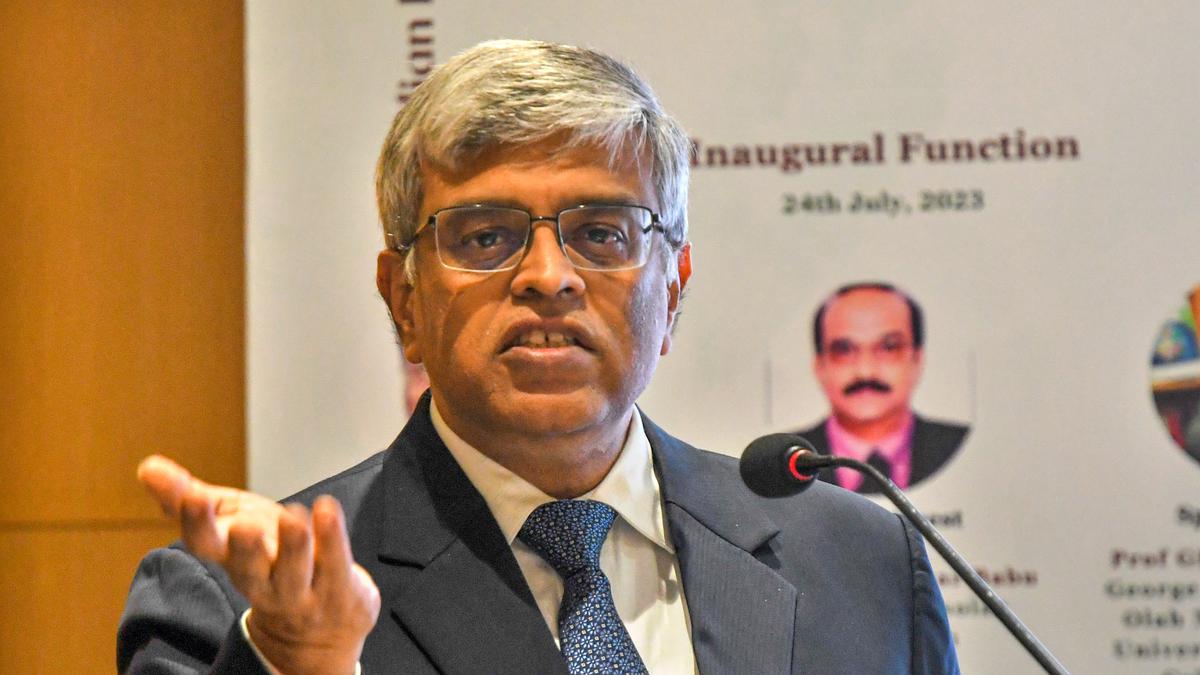
India needs 25 million metric tonnes of hydrogen energy by 2050, says Union Petroleum Ministry Secretary
The Hindu
Union Min. P. Jain stresses need to produce 25MMT of hydrogen energy by 2050 to meet country's energy needs. IIPE Visakhapatnam to play key role in achieving goals, make Visakhapatnam a production cluster for hydrogen energy. AP Govt. formulates Green Hydrogen Policy, taking support of IIPE to make Visakhapatnam a 'Hydrogen City'.
Union Ministry of Petroleum and Natural Gas Secretary Pankaj Jain has emphasised the need to produce 25 million metric tonnes (MTT) of hydrogen energy by 2050 to meet the country’s energy needs. The country’s energy consumption is one-third of the world average but is increasing at three times the world average due to factors including a growing population, he said.
Mr. Jain arrived in the city to deliver the keynote address at the inaugural session of the three-day Global Energy Environment Summit titled ‘Hydrogen Energy Resources and Opportunities 2023’ organised by the Indian Institute of Petroleum and Energy (IIPE) Visakhapatnam, here on Monday.
Addressing the gathering on the occasion, Mr. Jain said that before the Second World War, hydrogen was used as aviation fuel. But now, it is required for energy production as well. The 25MMT of hydrogen energy is needed to be produced from electrolysis (75%) and 30% from coal and natural gas. Therefore, a successful hydrogen economy needs to focus on regulations, infrastructure and trade rules in collaboration with various countries. In addition, technology transfer, risk mitigation, multi-institutional engagement and interoperable standards should be developed, he suggested.
“I hope that IIPE Visakhapatnam will become a primary academic and research institution in the energy sector by playing a key role in achieving the goals, and make Visakhapatnam a production cluster for hydrogen energy in future,” Mr. Jain said.
IIPE Director Prof. Shalivahan said that the primary objective of their institute’s research is to meet the country’s fossil and non-renewable energy needs. It also has a great responsibility to contribute to the achievement of the United Nations Sustainable Development Goals (UNSDGs) — ensuring access to affordable, reliable and sustainable modern energy for all.
“IIPE is committed to conducting research towards realising the Centre’s ‘Panchamrita’ to address the climate challenge as presented by Prime Minister Narendra Modi at COP-26 in Glasgow,” Mr. Shalivahan said.
Summit convener Prof. Somnath Ghosh said that in view of India’s $2 billion hydrogen economy commitment, the summit is being organised to provide an in-depth exposure on Hydrogen Energy: Production-Storage-Transport and Policy.











